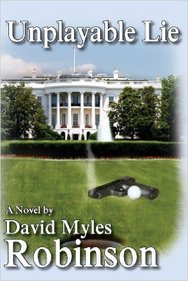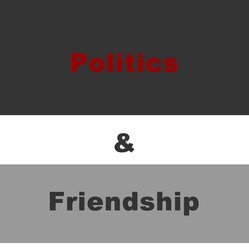|
By David Myles Robinson  I finished my first novel, UNPLAYABLE LIE, while I was still living in Honolulu. Naturally I put the word out to my friends and acquaintances in the legal community in which I had worked for thirty-eight years and to fellow members at my golf club. I breathed a huge sigh of relief once I began to receive in-person and on-line reviews. Except for those people who either hated or didn’t know anything about golf, the reception was very good, and even among most of those people, the consensus seemed to be that although they tended to skim through the golf parts, they still enjoyed the book. Until then, I’d only had the novel read by a handful of people and, of course, my editor and publisher. The fact that a publisher had accepted the book and was willing to invest in its publication was important, but ultimately it is the acclamation from readers which is most comforting and rewarding, for it is only then that you can breathe a sigh of relief knowing that you aren’t a complete laughingstock. One day, a couple of months after UNPLAYABLE LIE was published, a fellow attorney (not a close friend) came up to me at our golf club to say how much he enjoyed the book, but also to confide that he’d always wanted to write a novel. The main thing holding him back, he said, was fear of embarrassment. I knew exactly what he meant. Established novelists can write without fear (or at least with less fear) than those of us just starting out. They can give the finger to a bad review, knowing their readers will cut them a lot of slack (at least for a while). But all novelists, whether rookie or journeyman, must allow their readers a glimpse into their souls. As Ernest Hemingway said, “There is nothing to writing. All you have to do is sit down at a typewriter and bleed.” I harbor no illusions that I am a great writer. For now I am content in the knowledge that I write well and can tell a pretty good story. With each completed novel I can see and feel myself getting better. I told my attorney acquaintance that to some extent writing was like being a trial attorney or an actor, or, for that matter, a golfer. Ultimately, you have to be willing to put yourself out there and risk humiliation.
1 Comment
By David Myles Robinson  When I think of a good political argument among friends, I picture four older Italian men sitting around a table at an outdoor café in Rome, a half-drunk bottle of red wine at the center. The discussion is loud. The men gesticulate wildly as they make their respective points. The wine is consumed. The voices rise. The arm and hand gesticulations become grand manifestations of their passion. Suddenly one man makes a brash utterance of disgust, wagging with his four fingers touching his thumb as he does so. He turns in his chair, crosses his arms against his chest, and stares off into the piazza. But his disengagement lasts but a minute. His pretend indifference can only last so long. He hears something he disagrees with and whirls around to rejoin the fray. When the men finish the wine and the argument has petered out, they laugh and toast each other and talk about ordering another bottle of wine, perhaps accompanied by a game of dominoes. That’s the kind of political debate, sans gesticulation (we are Americans, after all), I used to have with my conservative friends. The level of loudness and civility would, I admit, tend to change for the worse the more participants there were and the more lopsided the partisan divide. People tend to become emboldened in their rhetoric when they sense they are being cheered on by their peers. All in all, however, for someone like me who is an admitted political junkie, it was fun and stimulating. But somewhere along the lines things changed. I’m not going to blame Trump for the change, although there has been an even greater evolution of deteriorating civility since he took office. Like so many things after 9/11, civil discussion and individual critical thinking seemed to have shifted into pure partisan harangues. It had suddenly become unpatriotic to question the Commander-in-Chief’s decisions on the war. Staunch Democrats in Congress (can you say Hillary Clinton?) voted to go to a war against a country which had nothing to do with 9/11 and which couldn’t have effectively used its weapons of mass destruction even if they did exist. One cannot really put too much blame on individuals who bought into the program. Even then, however, despite the fact that I took verbal beatings from my friends who were for the war, we remained friends and rarely shied away from expressing our opinions. With Obama’s election, the shift toward incivility became more pronounced. Bizarre and racist accusations about his birth and his so-called extreme socialist politics forged a divide which became almost impossible to breach. Policy disagreements aside, none of the hyperbolic and hysterical predictions about the Obama presidency became true. And no one apologized to the American people for their lies and dystopic pronouncements (although Glenn Beck did come pretty close to doing so). In our group of friends, the agreement was to avoid political discussions entirely, although in one-on-one situations I was still able to have good talks with a few of my moderate conservative friends. And then came Trump, and those of us on the left struggled with how so many Americans could be so vociferously supportive of a man who had been proven to be racist, bigoted, misogynistic, fraudulent, and a pathological liar. How could friends who I knew to be smart and caring and patriotic be so ‘all-in’ with such a despicable human being? Meanwhile, those on the right were every bit as mystified as to why those of us on the left were so vehemently against a man who “tells it like it is,” and who will “bomb the shit out of ISIS,” and who will “kick all the bad hombres” out of the country. So here we are. We don’t talk. We sometimes post our opinions on Facebook. We know in our hearts that does little other than fan the flames of division, yet on both sides we feel an overwhelming need to express ourselves. We can no longer do it in person so we turn to social media. But, in the end, isn’t that worse? When a rant is over we can’t lift a glass of wine and toast to our friendship and our agreement to disagree. We are left with a simmering angst and a real fear that we may have lost yet another close friend. Yet even as I write this, I’m not going to stick my head in the sand and stay silent. I can’t. All I can do is tell my conservative friends that although I may not respect their judgment as to the man they have elected President, we became friends before we were politically divided. We all saw something in each other that made us want to be friends. We know there is love in our hearts. So we need to suck it up and maybe shake our heads in wonder and then, in our minds, lift a glass to our friendship and to the differences that make us interesting. When we die, it won’t be our politics for which we are remembered, it will be the ways in which we touched each other’s lives. |
David Myles RobinsonAs will become readily apparent, my blogs will not just be about my books or even writing in general. They will be about whatever suits my fancy--and yes, I'm sorry, but that may include politics from time to time. We live in an interestingly tempestuous time and as a writer I find it impossible to ignore the worldwide psycho-drama (and, at times, psycho-comedy) being played out before us on a virtual daily basis. Archives
May 2021
Categories
All
|
 RSS Feed
RSS Feed